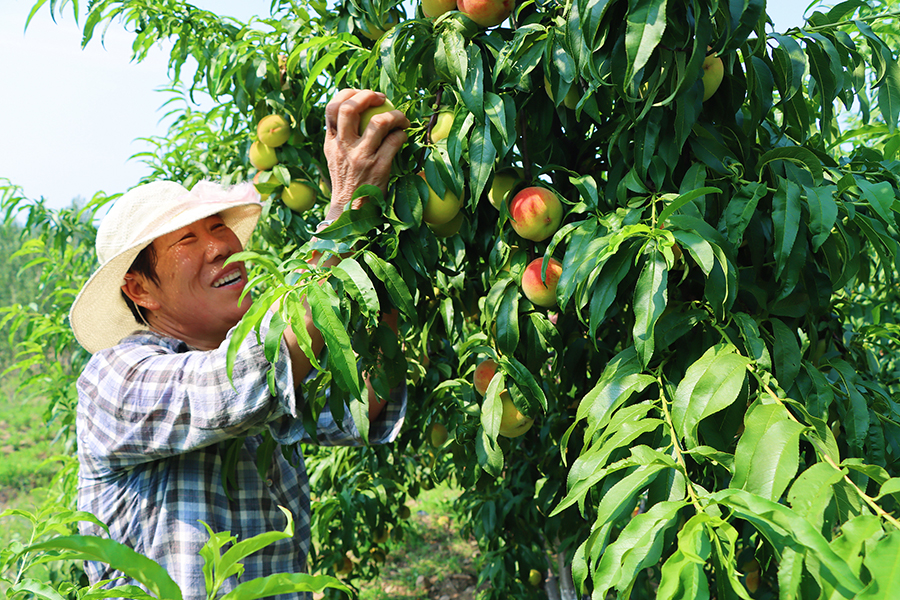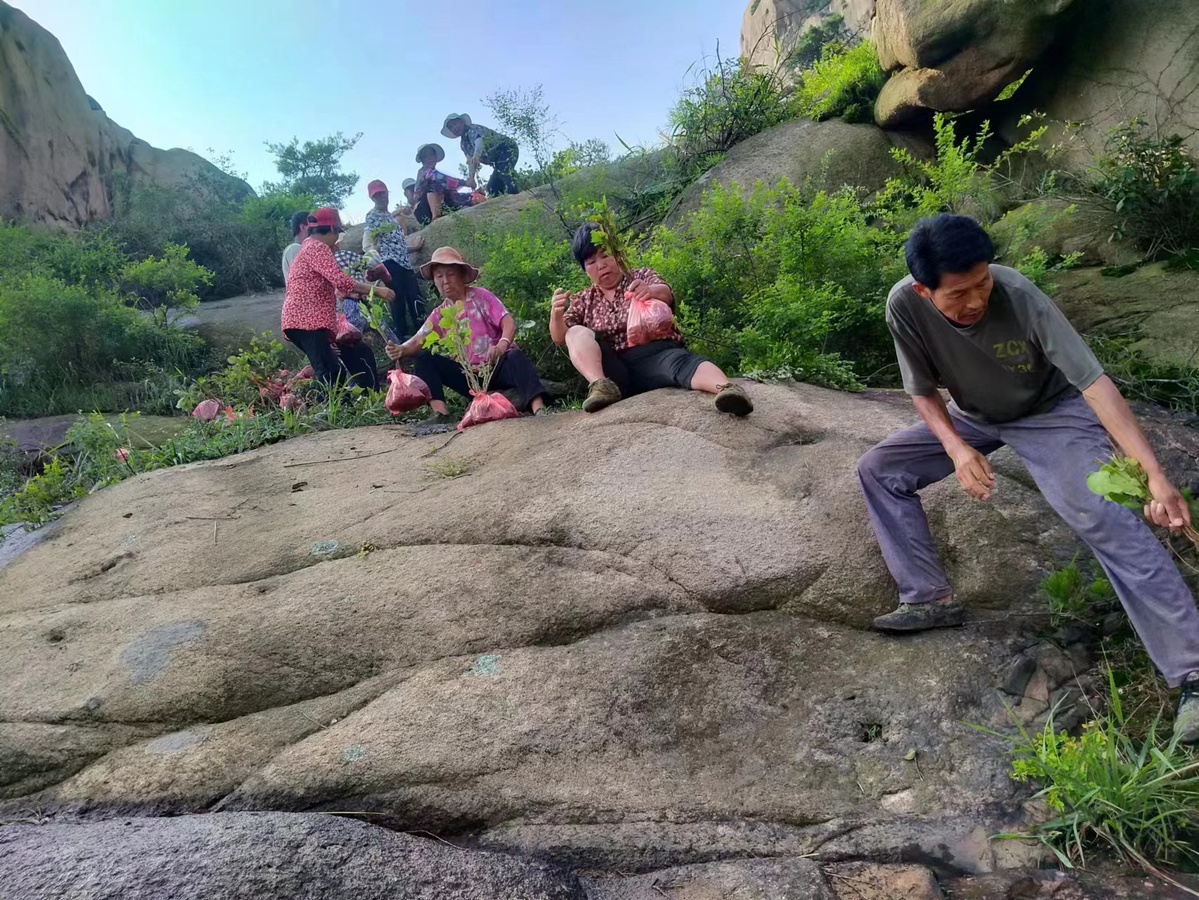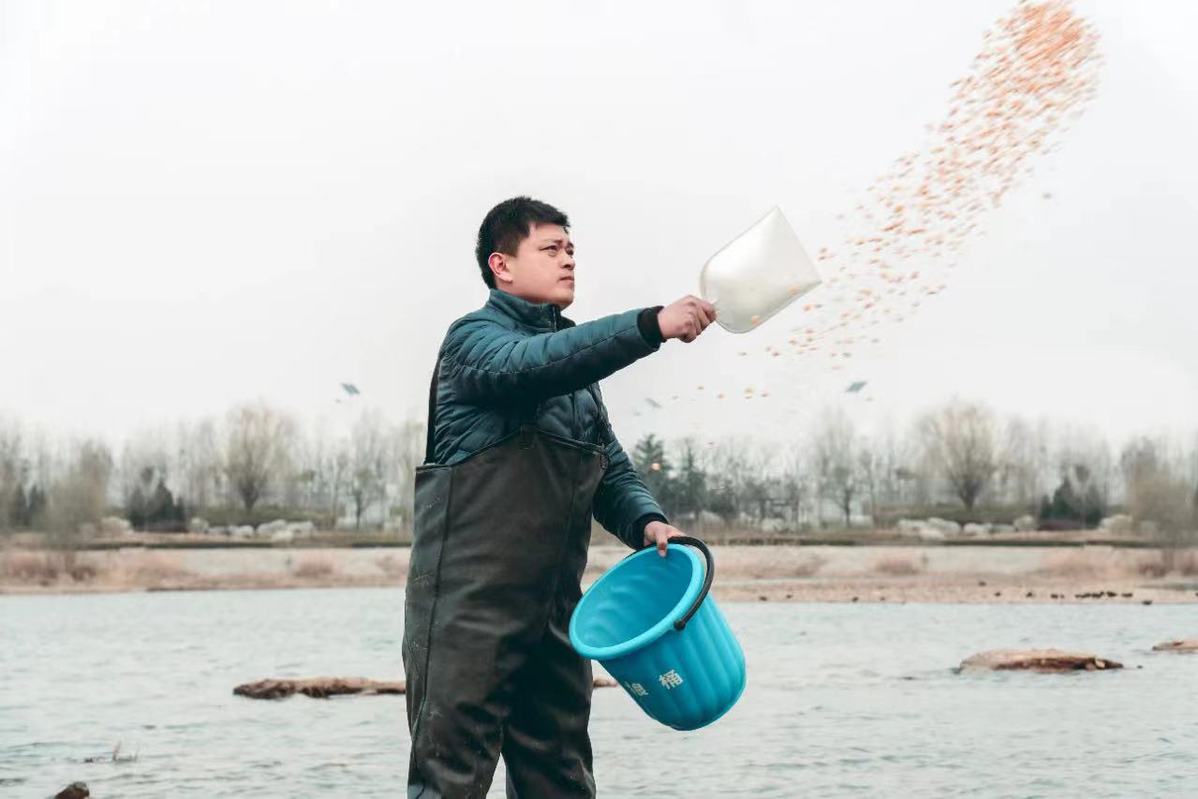
A farmer picks yellow peaches in the Sunjiagou village in Yuli township in Wulian county, Shandong province. (Photo provided to China Daily)
Meng Fanjin placed two scarecrows in his field last year to discourage migratory birds, especially the Eurasian coot, from feeding on the wheat seedlings.
The move by the 57-year-old farmer, who lives in Xiyunmen- a village in Wulian county, Shandong province — was in response to a growing number of various migratory bird species, including wild geese and egrets, choosing the small island in the Qiangkuang Reservoir near his village as their winter habitat.
However, it was only a decade ago that the water quality in the reservoir had deteriorated to such a low level that its terrible odor permeated the village.
Now, the water is so clear that the bottom of the reservoir can be seen, and the quality more than meets drinking standards.
"The quality of the air and water is getting better, as is the quality of life," he said.
The monumental shift in the ecology and environment in Xiyunmen and the Qiangkuang Reservoir epitomizes the green transformation in Wulian and across the country.
From 2012 to 2021, China planted 64 million hectares of trees, carried out efforts to prevent and control desertification on 18.53 million hectares of land, and restored 800,000 hectares of wetland as part of broader steps in its green transitioning efforts, according to a white paper on China's green development this month.

Farmers in Wulian carry saplings of smoke trees uphill as part of projects to afforest barren mountains in the county. (Photo provided to China Daily)
In Wulian, local authorities have ramped up efforts to green its barren mountains over the past decade, with over 25,000 hectares of land being afforested and the acreage of orchards increasing to 36,000 hectares. The county's forest coverage reached 40 percent by the end of last year, higher than the national average of 24 percent.
The idea of "lush mountains and lucid waters as invaluable assets", a philosophy of development long championed by President Xi Jinping, has been instrumental in the transformation of the county, said Wu Guangfeng, Party secretary of Wulian.
Wu said Wulian had been faced with major challenges for its green transitioning, including recurring droughts, barren landscapes and low incomes for rural residents.
One of the solutions, he said, was to encourage joint input from State-owned and private businesses, a move that eventually led to the greening of over 1,300 hectares of barren mountains.
Supported by 50 million yuan ($7.37 million) from the public welfare lottery fund that was allocated by the central government, Wulian was able to encourage farmers to grow yellow peaches.
The farmers reaped rewards as canned yellow peaches flew off shelves across the nation during the peak of the COVID-19 epidemic.
Yu Jiacheng, a 58-year-old peach grower in Yuli township, said his family was able to rake in over 120,000 yuan last year from their yellow peach farms, which were established on unused mountain land.
"We never had to worry about the sales of our produce. We had buyers arriving immediately after the harvest," he said.
In a bid to build a beautiful countryside, China has worked to improve life in rural areas, advancing the construction of modern and livable homes with sanitary toilets as well as the treatment and recycling of domestic waste and sewage.
Meng said many of his fellow villagers had a difficult time adapting to new rules that require them to sort their trash to boost recycling, as previously they would simply drop their daily garbage near their houses.
After years of adhering to the rules, Meng said that now villagers don't like throwing away trash arbitrarily.
The development of a rural sewage system has also played a key role in the improvement of the quality of nearby water bodies and of the area's environment.
Chen Honggang, deputy head of the county department of water resources, said the sewage system now covers about half of the county's 632 villages, including Xiyunmen, and another 55 will be covered by the system this year.

A volunteer feeds migratory birds in the Bailuwan wetland in Wulian county. (Photo provided to China Daiily)


